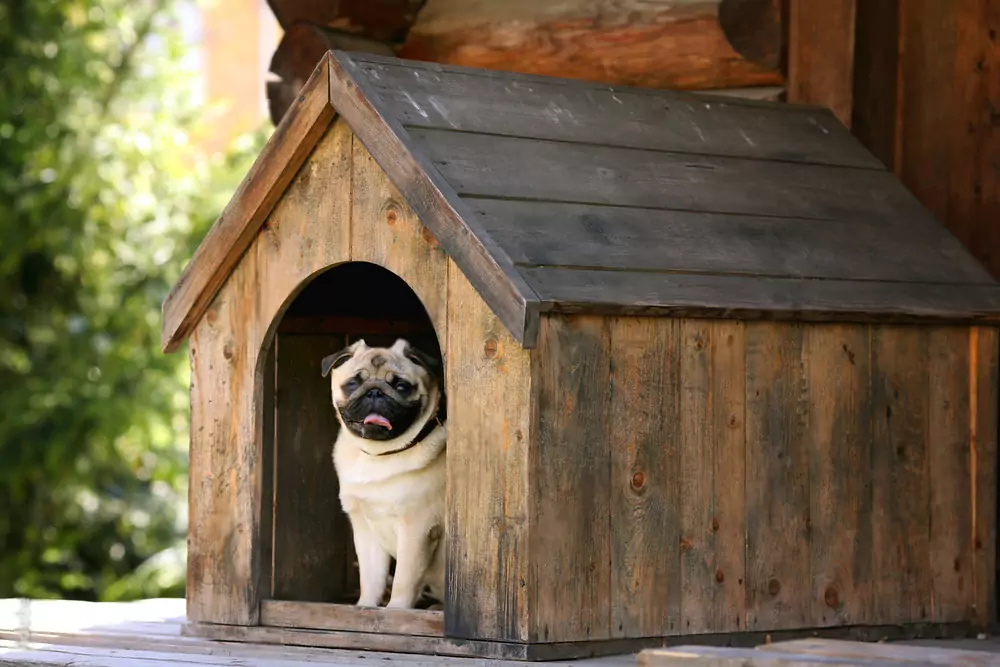Welcoming a furry friend into your home includes ensuring their comfort, especially during colder months. If you’re wondering how to insulate a dog house, you’ve come to the right place. In this comprehensive guide, we’ll explore effective and practical methods to insulate a dog house and keep your canine companion warm and cozy in their outdoor abode. From selecting the right materials to implementing insulation techniques, let’s dive into the steps that will make your dog’s house a haven in any weather.

1. Choose the Right Insulation Materials:
Selecting appropriate insulation materials is the first crucial step. Opt for materials that provide warmth without compromising safety. Common choices include foam boards, reflective insulation, and fiberglass. Ensure the materials are non-toxic and resistant to mold to safeguard your dog’s health.
2. Measure and Cut Insulation Panels:
Accurate measurements are key to effective insulation. Measure each panel of the dog house and cut the insulation material accordingly. Precision in cutting ensures a snug fit, eliminating gaps where cold air could seep in. Take your time to create panels that match the dimensions of each section of the dog house.
3. Install Insulation in Walls, Floor, and Roof:
Begin the installation process by placing the insulation panels in the walls, floor, and roof of the dog house. Secure the panels in place using non-toxic glue or tape, ensuring they stay in position during various weather conditions. Proper insulation in all sections creates a well-insulated enclosure for your furry friend.

4. Consider a Double-Layered Approach:
For extreme cold weather, consider a double-layered insulation approach. Add an extra layer of insulation to critical areas, such as the walls and roof. This additional layer acts as a buffer against harsh temperatures, providing extra warmth for your dog during chilly nights.
5. Create a Raised Floor:
Elevating the floor of the dog house can prevent cold from seeping in through the ground. Use materials like plywood to create a raised platform. This not only adds an extra layer of insulation but also keeps your dog dry in case of rain or snow.
6. Ensure Proper Ventilation:
While insulation is essential for warmth, it’s equally crucial to maintain proper ventilation. Incorporate vents in the dog house to allow fresh air circulation. This prevents the buildup of humidity, which can lead to discomfort and health issues for your furry friend.
7. Provide Warm Bedding:
Enhance the coziness inside the dog house by providing warm bedding. Invest in insulated dog beds or blankets to keep your pet comfortable. Make sure the bedding is moisture-resistant to prevent dampness, which can compromise the effectiveness of insulation.
8. Seal Gaps and Cracks:
Inspect the dog house for any gaps or cracks that could compromise insulation. Seal these openings using weather-resistant sealant or caulk. A well-sealed dog house not only retains warmth but also keeps out unwanted drafts.
9. Add a Door Flap:
Install a door flap to the entrance of the dog house. This simple addition prevents cold drafts from entering while allowing your dog easy access. A door flap also provides an extra layer of protection against wind and rain.
10. Regularly Check and Maintain:
Inspection and maintenance are crucial to the longevity of the insulation. Regularly check for wear and tear, and replace any damaged insulation materials promptly. This ensures that your dog’s house remains a comfortable retreat throughout the changing seasons.
In conclusion, insulating a dog house is a thoughtful investment in your pet’s well-being. By choosing the right materials, ensuring proper installation, and incorporating additional features like raised floors and door flaps, you can create a cozy and insulated space for your furry friend. Prioritize their comfort, and you’ll be rewarded with a happy and content canine companion, regardless of the weather outside.
Also read: How to Introduce a Shock Collar to a Dog: A Comprehensive Guide

